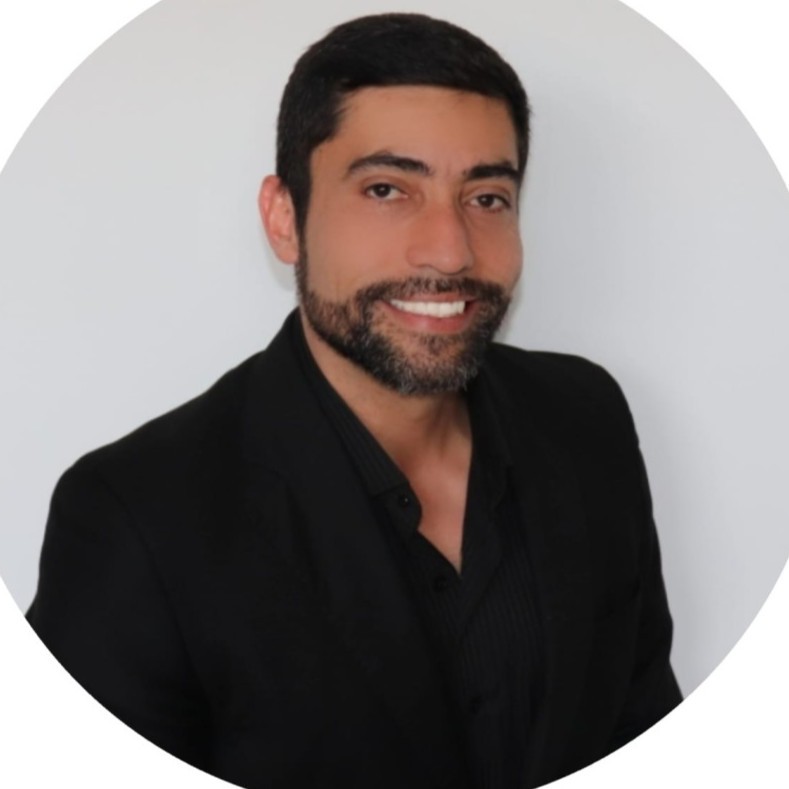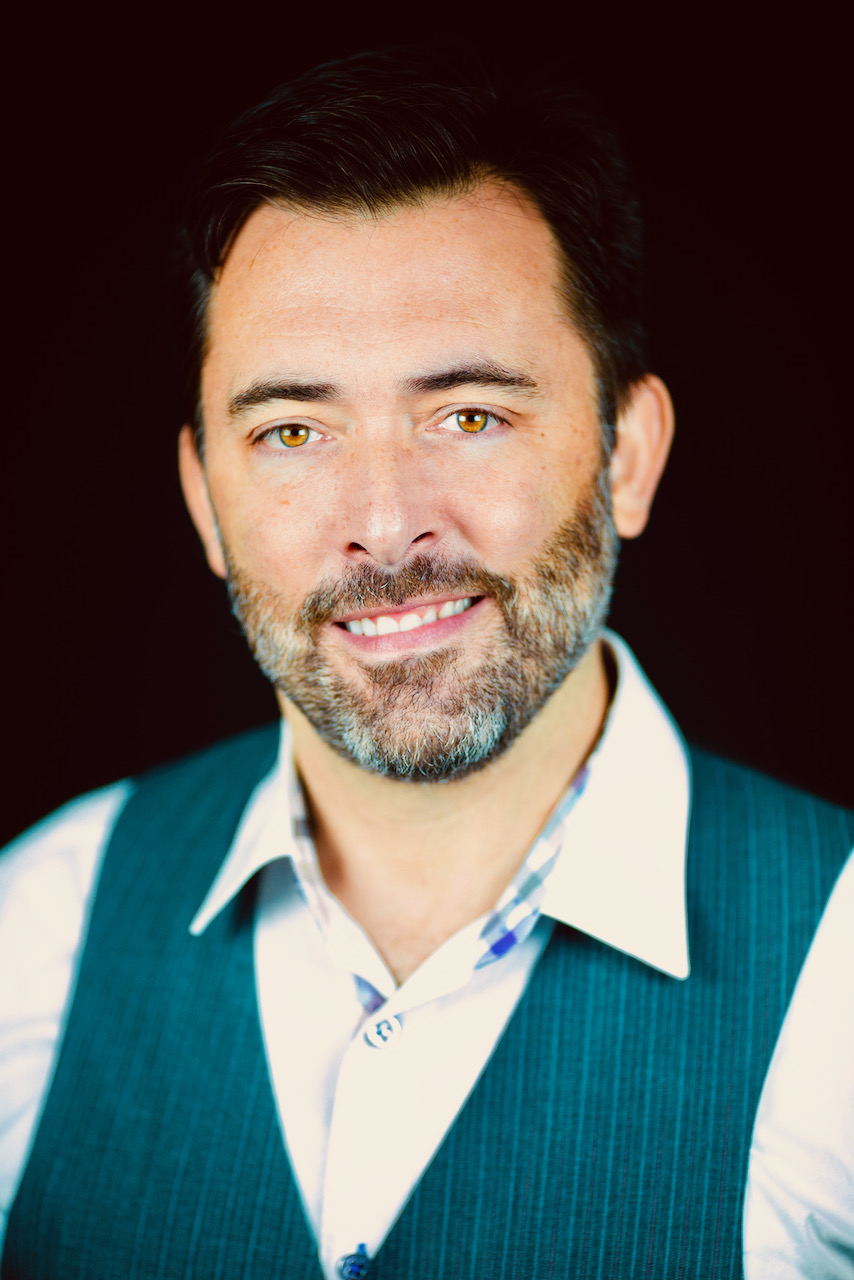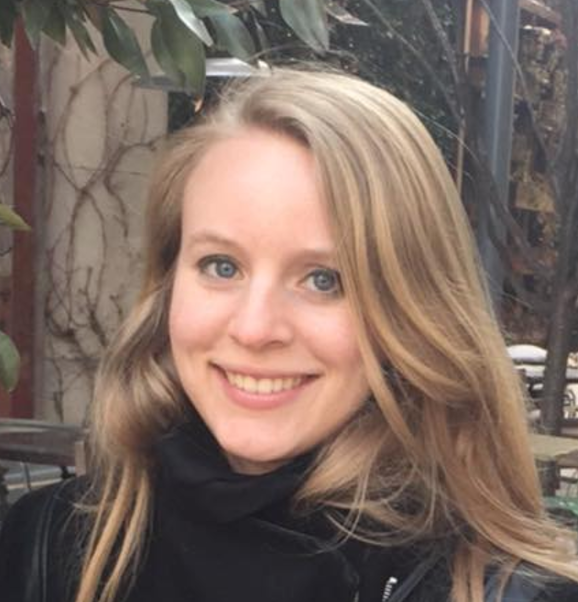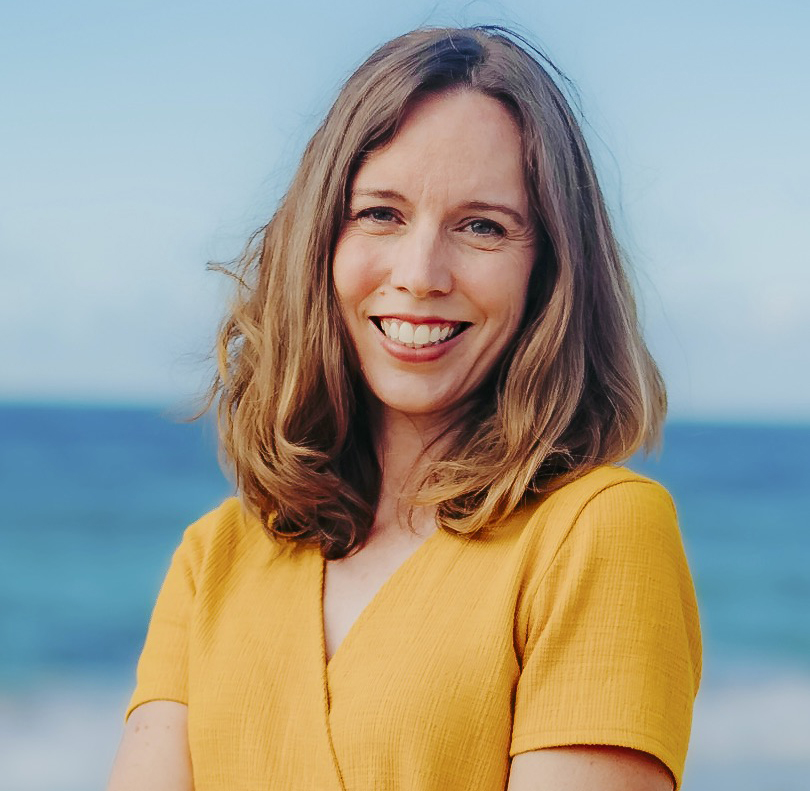Listen
Guest
on this episode
Is your career on autopilot? We see it all the time. Something happens, maybe it’s a change in your personal life, maybe it’s a company restructuring or a layoff, but you suddenly realize your career has unfolded around you.
You’ve never stopped to think, “Is this really the direction I want to be headed? Is this the type of work I want to be doing? Does this work fit the life that I want to be living?”
So then what? How do you justify a career change at 40? Can you take control of your career when you’re already 10, 20, or 30 years in?
That’s exactly what Jorge wondered when he was looped into a round of company layoffs.
Jorge is from Colombia and has worked in the technological space for over 20 years. He began his career in sales, moved to working as a translator converting Spanish documents to English. This eventually led him to travel the world working as a partnership professional.
When Jorge was surprisingly let go from a company for the first time in his career, at 42 years old, he began to reevaluate his career, his identity and wondered if he was on the right track.
“If you don’t know where you’re going, every path is good for you. When you have a path that you choose, then you can focus all your strengths and your resources toward that path. That was a feeling that I never had felt before, and it was amazing.”
What you’ll learn
- How shifting from a passive approach to a more intentional mindset can make all the difference in a career change at 40
- Strategies for conducting career experiments to pinpoint the path that aligns with your interests and strengths
- How to navigate multiple job offers and make educated decisions based on your values and goals
Jorge 00:01
If you don't know where you're going, every path is good for you. And when you have a path that you choose, then you can focus all your strengths and your resources towards that path. That was a feeling that never had failed before and it was amazing.
Introduction 00:22
This is the Happen To Your Career podcast with Scott Anthony Barlow. We hope you stop doing work that doesn't fit you, figure out what does, and make it happen. We help you define the work that is unapologetically you, and then go get it. If you feel like you were meant for more, and you're ready to make a change, keep listening. Here's Scott. Here's Scott. Here's Scott.
Scott Anthony Barlow 00:47
If you've had a successful career, you may not even realize that you're on autopilot. That is until one day something changes. Maybe it's something in your personal life. Maybe you're part of a round of layoffs, whatever it may be, you realize your career has unfolded around you and you've never really stopped to think, "Is this really the direction I want to be headed? Is this the type of work I want to be doing? Is this how I want to spend my time?" Then what? How do you take control of your career when you're already 10, 20, 30 years in?
Jorge 01:18
It was very exciting to, for the first time in 40 years of life and 20 years of career, that I find something that I wanted to do. Previous to that experience, I was more of a whatever opportunity comes my way I will take it and that'll be it.
Scott Anthony Barlow 01:41
That's Jorge. Jorge is from Colombia and has worked in the technological space for over 20 years. He began his career in sales, moved to working as a translator converting Spanish documents to English, which eventually led him to traveling the world working as a partnership professional. When Jorge was surprisingly let go from a company for the first time in his entire life, he began to reevaluate in his career, his identity and wondered if he was on the right track. He was offered a new job less than two weeks after being fired. But for the first time in his life, he wasn't sure if he wanted to continue to pursue his career in partnerships. So he reached out to us and began working with our team to be intentional about his next career move. He was ready to take control of his career and figure out what type of work would feel more meaningful while also fitting into his life and allowing time for his family. In just a moment, you're going to hear our conversation where Jorge walks through how he conducted multiple experiments, multiple career experiments to pinpoint the path that was right for him. He did such a great job figuring out what would fit him best that ended up with, not one, but multiple job offers. And ultimately, he had to figure out which to choose when they all seemed like a fit, which was another challenge all in itself, right? Let's get into our conversation. Here's Jorge going back to the very beginning of his career.
Jorge 03:07
When my career started, when I just graduated from college, I was just a newly electronic engineer out of a public university in Colombia in Bogota, Colombia, and I wasn't sure what I was going to do, and mothers do what mothers do. So she started to put a little bit of pressure. And I was not in a hurry to start my career, but she did what she had to do. And I had a very close group of friends. And one of them had a company, it was a family company, where they were offering solutions for automation for factories. So basically, what they need was a salesman. And the agreement was a freelance contract, in which I basically earned what I commissioned. And I started to meet every factory, going from fabrics, plastics, brakes, selling these automation solutions. These were actuators, pneumatic, some stuff like that. And it was a great experience because I was outdoors, I was meeting people, I was meeting challenges, meeting many ways to produce solutions and things that people were using. So it was great. After that, I was contacted by a company that needed someone that who translate documents from English to Spanish. And I said yes, and I started just working again per contract. They pay me by based on translated. And after, I don't know, when you were 25 manuals being translated, they say "Hey, you know what, you well translated all these manuals. We need an instructor that actually helps us to onboard many of the instructors that are going to be part of a new project. So would you like to get out of your country and come to Canada, and then go to Venezuela?" And that time that Venezuela was having business with a lot of countries. And I did that. I went to Canada, I learned how to use the systems then went back to Venezuela, and teach a lot of courses in power electronics, IT, and Radars (Air Control Radars). And it was a great experience. It was amazing. I got out of the country, I met many people. And I was teaching and exploring what else I could do with my career.
Scott Anthony Barlow 05:53
That's fantastic. So then you were in Canada. And what happened next? Where did you...?
Jorge 06:01
I went to Venezuela to actually do the work, just onboard the instructors within the system, just teach them how to use the systems. And so they could replicate that with the several cohorts that they were going to use the systems. IT, power electronics, and air control radars. So that was very interesting. And of course, I mean, I met them. And this was the state-owned, non-formal education of the country. So technical education. So basically, all the electricians, air control, traffic personnel, IT, like at the level of support, and stuff like that. So these were technical roles. So they needed to train the next generation of those people. From there, when I left that company, I started to work again with by the chance of luck with multinational organizations. And I went to a big project from Lockheed Martin with the Colombian National Aeronautics organization for the change of air configurators in the country. That was a big experience, it was a one-year project that taught me a lot. When I finished the project with Lockheed Martin and the Civil Aeronautics of Colombia, the next transition was to a big seller operated in the country, the biggest one in the country, which is a regional operator is owned by a family, the same family, you may know them, Scott. And I entered into the wrong department. During department basically, as an engineer, I had to make the test, the technical test to ensure that the connections, the signaling, the voice, and the data was working fine. So any user of another network will run into our networks and our users will run into theirs. So basically, if every test was okay, we sign an agreement of collaboration in which we allow that and both companies will gain revenue out of that. So that's the basic partnership deal. Later I knew that that was going to be my first approach foreign ships. And that will define later on my interest to work and develop in the partnership space.
Scott Anthony Barlow 08:32
So here's what I'm curious about. What was the role that you were in or the situation that you were in that led up to you making this most recent career change?
Jorge 08:43
I got the opportunity to work for a big company that is the leader in detection technology. And for that role, I had to do a bit of a mix between project program management and partner management. And I did both things with, I will say, success within the organization. And everything was going okay, the numbers were going fine, the projects were being delivered, but the pandemic hit. The pandemic hit and things started to change. The supply chain started to become slower. The raw materials become more scarce. And the different demands for equipment was starting to become less and less. Let's say that volumes lower down and the company made the decision to cut some roles. I was in it. And that put me in a situation that I have never been before. I had several career transitions, but this was the first one that it was forced on me. I mean, I was let go. So it was the first time that I was fired from a company. And being the first time at mature age, because I was fired when I was 42 years old, for me, it was a scare, it was scarier, it was challenging. And much of my identity was tied to the role. So it was very difficult to actually absorb the experiments. So I came to the conclusion that I needed help to actually make that integration and to understand and move forward, I was not going to be able to do that myself. So that's where I started to look for options, coaching options, and a couple of companies came up and Happen To Your Career came in a podcast, and you were discussing precisely that, how to make career transitions and how scary they were and how you kind of know where to get help from. That conversation made me decide that Happen To Your Career was the place that I wanted to seek that support. So I reached out and I started to make the career transition. But the funny thing is that I was fired. And two weeks after I was fired, I was offered another role in a startup to develop partnerships. So I said yes because I wasn't sure at the time that I wanted to pursue, that I wanted to continue to pursue my career in partnerships. But I liked it. So I said yes. And during the exploration phase of the Happen To Your Career process, I found out that partnerships was the thing that I wanted to do. And I was in the right space. The only thing is now, okay, now it was a great realization. So okay, great. For the first time in several years, I know what I want to do. And now it's only a matter of finding where is the right place to do it.
Scott Anthony Barlow 12:17
So I'm so curious about that. Because, first of all, you and I both know that is not a small amount of work to get to that single realization that, "Hey, this is where I want to be." This is where I want to spend my time in terms of what functionally you want to be doing, working, etc. So that's awesome. And kudos to you for the amount of work that goes into that, even get that realization. And I heard you say that, at that point, it was more of a question of "where". Where do you want to do some type of partnership? And, what I'm curious about, though, before we go into the "where" is what allowed you to realize that partnerships was right for you.
Jorge 13:03
Yeah. When we started to make the strength assessments, several things came up that were very interesting, like the social aspect of my personality, how I wanted to help, contribute, collaborate. The other thing was the leadership, the leadership aspect, and how to bring that cohesion, that cohesive vision to teams.
Scott Anthony Barlow 13:28
Sure.
Jorge 13:29
And then I started to kind of do that exercise where you make your interest, your strengths, and your passions, and where those kind of intersect. And I started to kind of link that to different options of roles that may feed those intersections better or less. And I remember that we did this with Phillip. And it was like, five roles. One of those was product management. The other was served as the labor management, sales manager, partnership management was there. And we started to assess several companies that had those roles. We didn't close immediately, we just opened the options. And we started to explore what companies may be needed in those roles. And based on the descriptions of the responsibilities and the challenges of those roles, we started to see what interested me the most and we made the checks that week. And it was not something like above just came out of nowhere. It was just that week after a week we were discarding those roles that were less and less interesting to me. And at the end of the day, the lease was clearly that partnership roles were the ones that actually feel the most expectations on my list. And I was like, "Okay, let me explore a little bit more of these." So I started to explore more, what was on the space, who were doing this type of roles, in what companies, what was the progression of these roles? And I was like, okay, so this is what I want to do now. And then I started to just focus on those types of roles.
Scott Anthony Barlow 15:28
That is pretty great. So here's what I'm hearing, you initially started out with your strengths, and then defining what it is that you want. And then from there, as you started getting into what we would refer to as career experiments, one of the, it sounds like one of the exercises that led up to that along the way was our, well, we've got a couple of different names for this exercise, but in particular, it's like your strengths, passions, and excitements, etc, that exercise allowed you to realize that it was more in this area of relationships, partnerships, people, and that interacting with people in that particular way. So then when you went into experiments, later on, it sounded like you had five potential areas that you had identified. And then every single week, as you got more and more information, as you were identifying smaller scale experiments that allowed you to chip away at each of those five roles, or five ways to contribute, we'll call it, and then you kept finding that you were left with the partnership's type of roles. Is that right?
Jorge 16:38
Yeah, exactly. And for me, the approach was, what roles would actually include the most of my interests? Because I tend to see things in a potential way. I like to see things in a variety. For me, variety is important.
Scott Anthony Barlow 16:56
Yes.
Jorge 16:57
So the roles that were including most of those things, those were that actually we started to keep. And in those that were less, we started to trim away. So it was a list of roles in which partnerships, the partnership that was included. And then we started to chip away those that led that reduce that variety. And partnerships just paid the bill.
Scott Anthony Barlow 17:27
I appreciate that. Because a lot of times, it's not obvious how this happens. And to your point, it was many, many weeks, where we're chipping away at the marble in order to come out on the other side with the statue that is sort of shaped like partnerships, in one way or another.
Jorge 17:45
Exactly. And I started to make calls, I talked to product managers. I started to get to colleagues that were doing sales. And I started to try to understand how would I fit into those rooms. And it cannot always, every conversation that I had with them, it was like, "But I can do that where I'm standing." And "But I can do that with what I'm doing." And if I develop this skill, or if the field keeps progressing, as it seems to be progressing, I'm going to be able to be exposed to these other things. So that level of potential that the role had during the experimentation, which is, it involves also research because you do a lot of this by research and experimentation is also by research, ducking and finding out that it was also affected.
Scott Anthony Barlow 18:43
Very cool. So you went through a variety of different types of experiments. And I think to be clear, it wasn't just you set up one experiment, and then boom, you had an answer. And voila, skated off into the sunset. It was an entire series of experimentation that even got you to this point that we're talking about right now. So what do you feel like for you was most surprising or most challenging during that process? What did you find?
Jorge 19:16
Well, just, I mean, the most surprising thing was just realized that I ended up when I started. That was the most, like, surprising thing. But at the same time, it was very exciting to, for the first time in 40 years of life and 20 years of career, that I find something that I wanted to do. Previous to that experience, I was more of whatever opportunity comes my way, I will take it and that'll be it. But now that realization come, it was different because focus is key.
Scott Anthony Barlow 19:59
That is really cool for so many different reasons. But it sounds like this was almost a dividing line, if you will, in your life where you are now for your career, pursuing things in a much more intentional way where you're seeking it out, as opposed to evaluating what is coming your way and saying, "Do I want to do this or not?" One's very narrow focus in terms of its binary, it's yes or no, do I want to do this? Which is very different than saying, "Okay, I'm going to go and I'm going to identify where in the world, what organizations, what opportunities are available for me to do what I want to do in the way that I want to do it." Which is the new stage of your life that sounds like that you've entered. Is that right?
Jorge 20:50
Yeah, that's correct. That's correct. It was a very different approach. It was the vital line. It changed the way I see how my career will develop in the next few years. It gave me, I don't want to say like purpose, because I kind of had before, like a general purpose, you know?
Scott Anthony Barlow 21:15
Yeah.
Jorge 21:16
I have been working in my career since 10 years ago. I made a conscious decision on upscaling every year and looking at ways to become a better contributor to my career as an engineer or as a commercial person. But it was more of a "what is on trend, what are other people doing? Okay, I'm gonna do that." This time around is different. This is okay. This is under my terms, under my conditions. I'm going to upskill myself, and I'm going to continue what I was doing 10 years ago, but it is going to be focused on this goal, on this framework, or on this picture.
Scott Anthony Barlow 22:02
But I think it's, I mean it's very much the difference between intentional and what's available. Nicely done. That's not a small feat at all.
Jorge 22:15
One of the things, one of the conversations or recurring conversations that I have with my friends and my family, is how it only took me four years of my life discovered what I wanted to do when I grew up. So it is not a lesser thing. But it cracks everyone I tell this story, because, okay, it took you just 40 years. Cool.
Scott Anthony Barlow 22:43
Now, the reality is I think most people are in that place, it's just not socially acceptable to talk about it.
Jorge 22:51
It might be.
Scott Anthony Barlow 22:53
Yeah. So I mean, I really think that's awesome. And obviously, I'm highly biased. So there's that too. But I wanted to ask you about this other piece of your story, too. Because after you did some initial experimentation, after you validated that partnership, and that type of interacting with people and that type of relationship building is right for you. After you have that validation, it eventually led to multiple job offers, right? If I understand correctly, four of them. So, what I'm really curious about is for people on the outside looking in, help us understand what you were evaluated. And when you got to the point in time where you had multiple offers coming in, and they rarely all come in at exactly the same time on the exact same day. So, emotionally, it can be up and down as you get another one and another one. But help me understand what you were going through at that time and how you evaluated what would in fact be right for you.
Jorge 23:56
Yeah, that's cool. And just for clarification, it was not four just three.
Scott Anthony Barlow 24:01
Okay.
Jorge 24:02
Three offers.
Scott Anthony Barlow 24:02
Three offers.
Jorge 24:04
And it was, I think it was a wave, you know. Most likely the job market has these waves, in which there are a need for certain types of skills and there is a search, and if in a lot of words and then it goes down. So when we started to, we were clear intention, we were clear on the path that I wanted to take. So now it was time to focus. So what organizations are looking for this type of role? In our mind, it was clear that he was tech companies, software companies, technology companies that we wanted to focus so I decided to network, apply, and an interview. And although that process led to the first wave of three companies selected me to go to second and two of them or to the third stage, and then silence, nothing happened. So I was like, oh my god, what is wrong here. So then it was a low, and like, downward spiral or trend that nothing happened. And we just kept having conversations, kept connecting, kept sending emails, kept sending applications, and all of a sudden one came back. And they interviewed me and they passed me to the second stage. And between second stage and third stage, it took them a long time, and then another came up, and they say, "We want to move very quickly." And they moved me very quickly, up until third stage. And at that point before third stage, and final offer, another company came in, "We need you, and you are a perfect fit. And this is the offer." And I was like "Wait, wait, wait." Let me process this because I mean two other processes that are well-advanced. And I need to take this one step at a time. So they say "Don't worry, this is a structured company, a structured process, but you seem like a very good fit. So I'm going to schedule you for the two phases because I know that you're going to need them. And we are going to go through the adding and we're going to talk." So I went through the two phases, like in a week or something. And then when this company, this last company made an offer, I was going to say to the other two that, "Okay, I had an offer. Okay, you guys want to continue this or not?" But I was going to do that with the second company. And then I received that offer. So I had two offers. And I was like, "Okay if I have two offers, wouldn't it be cool if I had the better one to just compare the whole three?" And that's what I did. And I call the dealer one and they say, "Yeah, your offer is ongoing. But it's going to take time. If you can give us the time to give you the offer, then..." they told me, "you're not going to regret it." But the other two started to, you know, that they already extended enough. So it is started just press and press and press so I can have gain time, like two weeks or we can have to study the offers. Phillip came into the picture, we reviewed them, we kind of compared them, we matched them to the strengths and what I was looking for as an ideal, and we waited. That we want to make this to wait more and expect that there are one or do we want to just take a decision. So I say I want to wait. So let me test one more time if they're willing to extend the offer or not. And they wanted two extra weeks. So I said, "No, it's not going to cut two extra weeks to try an offer." So I say "Thank you, not thank you, I'm not going to be able to wait for your offer." I declined that. And I remained with two offers. With those two offers, I compare them. One was very interesting, but it was in a NASA field, technology field. So the chances it was a very, very good offer, but the chances of new technology and the new space, it was risky. So the second one was in a very established industry ripe for digital transformation. It had several factors that appealed to me. But as usual, you have some doubts, but at that point, you cannot... I mean the time of experimentation ends. And sometimes you need to make a leap of faith. So with the information I had, I chose the third one that they offered. And here we are.
Scott Anthony Barlow 29:09
First of all, that it's challenging to, if you haven't been in a situation where you have two or three or four offers, then it's hard to appreciate the almost up and down sort of roller coaster type of feelings. It really is. So it's a really wonderful situation. It also creates desirable problems where you're trying to evaluate, "Hey, do I continue to talk to this organization?", "Do I not?", "How well does this line up?" And to be able to make ultimately decisions with limited information. However, I think here's the thing that a lot of people miss that is really really cool about your situation. At this point, you had already gone through no small amount of work. So you had already decided that, okay, functionally, in partnerships will align much, much better with where you want to be spending your time. And then you'd already gone through some measure of vetting these organizations. So you had at least an inkling of an idea that these organizations could line up with what you wanted. So it wasn't as if you're evaluating three offers that just had come to you and said, "Hey, all right, we really want you to, we really want you to be here." And you're like, "Well, I don't know, maybe." It was a you-sought-this-out and then got all the way to three different offers that you'd already validated to some degree, what that they had portions of what you were looking for. So that's really cool. I just wanted to acknowledge that upfront. And so in that situation, if other people find themselves with multiple offers, what advice would you give them? What helped you through that process? What advice would you give them overall?
Jorge 31:02
I will say that, in that situation, or in any situation, that you have several alternatives to date, there has to be some inner conviction, inner values or core values that serve as a core that you go back, without that, every single decision in your lives gets complex and complex. And I think that reviewing those core values, reviewing those, that purpose that you have, helps you to assess the decisions and make those decisions, assess the opportunities and make the decisions. But even in that case, you may not make the right decision. And that's okay. Because what you have is a core value, you are so open to re-evaluate your own purpose and core values, but also to accept that whatever expectations you may have, when you make the decision may change. And those changes may not be bad. It's just another opportunity to grow. And to continue that experimentation, which in life, I think, and we were talking about this, and we were discussing where we started to talk, I guess that is a main component of life, just continue to experiment, and continue to test life experiences in life.
Scott Anthony Barlow 32:30
Well, I think what's really fun is that as you accept, like, I don't know, you did all of this really wonderful work. And as you got to the point where you had multiple offers, and then used all of the information that you had accumulated to make an educated decision about which way to go, is that as soon as you accept that, that new role, that new opportunity now becomes the next experiment. And then you get to see, and I think you've done a really nice job with us over the last six months, you get to see...
Jorge 33:03
That's a great way to put it.
Scott Anthony Barlow 33:08
I think that for people who are way back where you were before you made this most recent change, and they are wanting to make their first intentional career change, what advice would you give those people about the career change? Or how to even think about this more intentional way of living or working?
Jorge 33:34
I think that if I'm not sure if I'm qualified to give advice, but I'm gonna give my best. If anything is, you need to have a curious mind with yourself. And that is not always something that it comes across as something you need to do. Most people tell you to be curious about the world, but few people tell you be curious about yourself. So I think that if anything, be curious about yourself, be curious about what you want, and can, and excel, and will excel to give to the world because every single one of us has great potential. So if anything, just be curious about yourself and be willing to explore and be willing to discover that potential to that experimentation that you so great described as the next step. Just continue experimenting.
Scott Anthony Barlow 34:39
Most of the episodes you've heard on Happen To Your Career showcase stories of people that have taken the steps to identify and land careers that they are absolutely enamored with, that match their strengths and are really what they want in their lives. If that's something that you're ready to begin taking steps towards, that's awesome. And we want to figure out how we can help. So here's what I would suggest. Take the next five seconds to open up your email app and email me directly. I'm gonna give you my personal email address, scott@happentoyourcareer.com. Just email me and put ‘Conversation’ in the subject line. And when you do that, I'll introduce you to someone on our team who can have a super informal conversation with and we'll figure out the very best type of help for you, whatever that looks like. And the very best way that we can support you to make it happen. So send me an email right now with ‘Conversation’ in the subject line.
Scott Anthony Barlow 35:32
Here's a sneak peek into what we have coming up in store for you next week.
Speaker 3 35:37
If you come at someone with, like, the "I'm looking for a job" mentality, or like "I need to get out of my current job" mentality, it's hard because they don't know who you are, or like if they can help you or not. And so it makes a really awkward conversation.
Scott Anthony Barlow 35:52
When you're trying to step into an entirely new career, relying on your current network doesn't always cut it. And it's a situation we see all the time. You're really excited about diving into a new industry, a new role, but you feel like you're starting from scratch when it comes to building relationships or building a network, and you have no idea where to begin. And your familiar safety net of connections no longer applies. So how do you begin to create new meaningful connections from scratch without seeming extremely awkward or like you're using them to get a job?
Scott Anthony Barlow 36:33
All that and plenty more next week right here on Happen To Your Career. Make sure that you don't miss it. And if you haven't already, click subscribe on your podcast player so that you can download this podcast in your sleep and you get it automatically. Even the bonus episodes every single week, sometimes multiple times a week. Until next week, adios. I'm out.
Sign up to receive email updates
Enter your name and email address below and I'll send you periodic updates about the podcast.

Ready for Career Happiness?
What Career Fits You?
Finally figure out what you should be doing for work
Join our 8-day “Mini-Course” to figure it out. It’s free!
Featured Episodes
View all episodes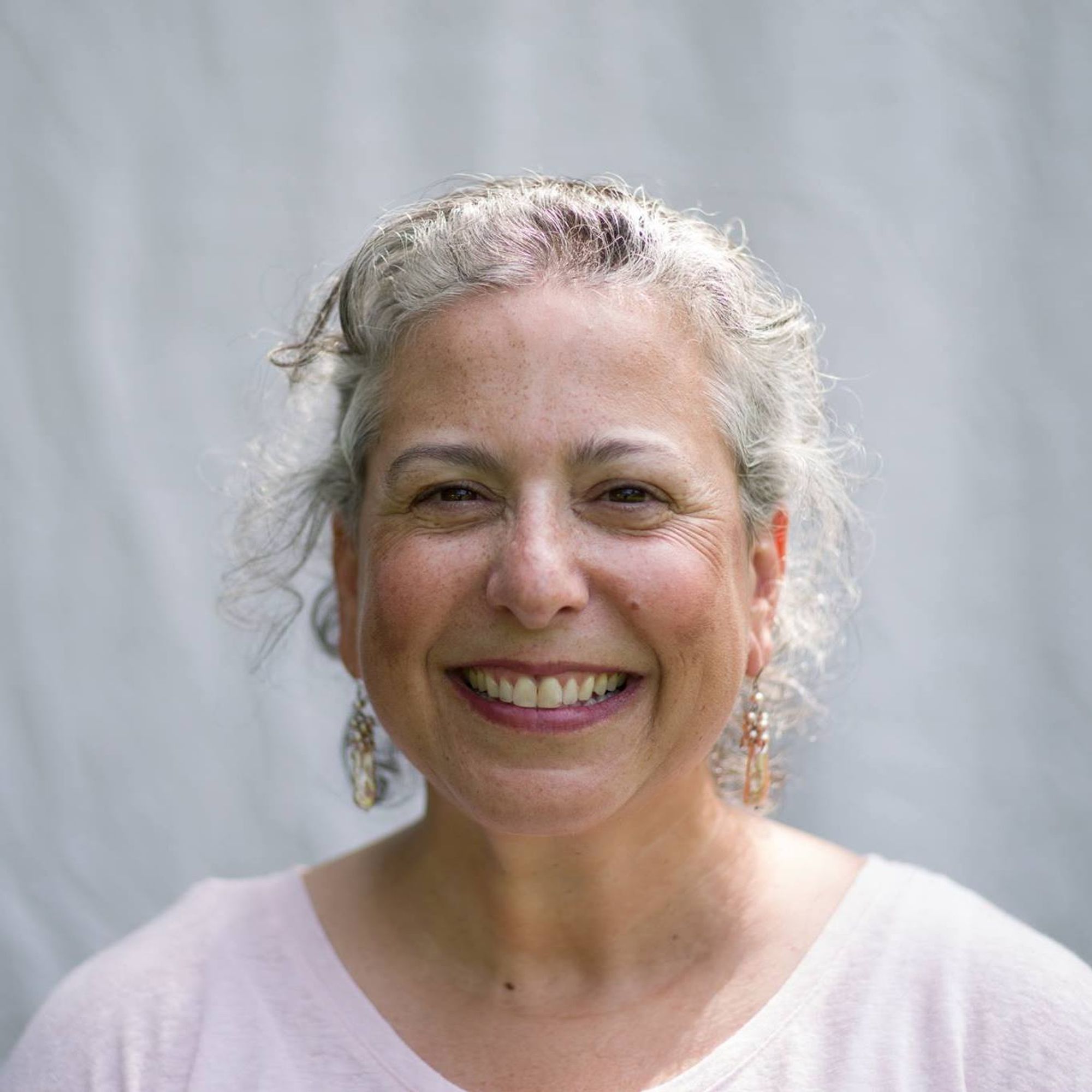
April 1, 2024
561: Intentionally Changing Careers To Fit Your Life Design
Listen Now
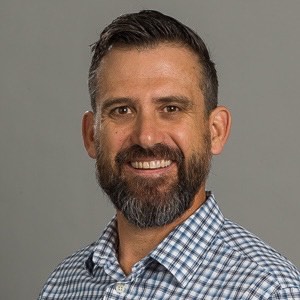
April 17, 2023
511: Career Change at 50: You’re Never Too Old or Too Busy
on this episode Starting a new career later in life can seem like a daunting task, but it doesn’t have to be. As we age, we may feel like we’re too set in our ways to change, or that time is running out. However, the truth is that a career change can be just what […]
Listen Now



